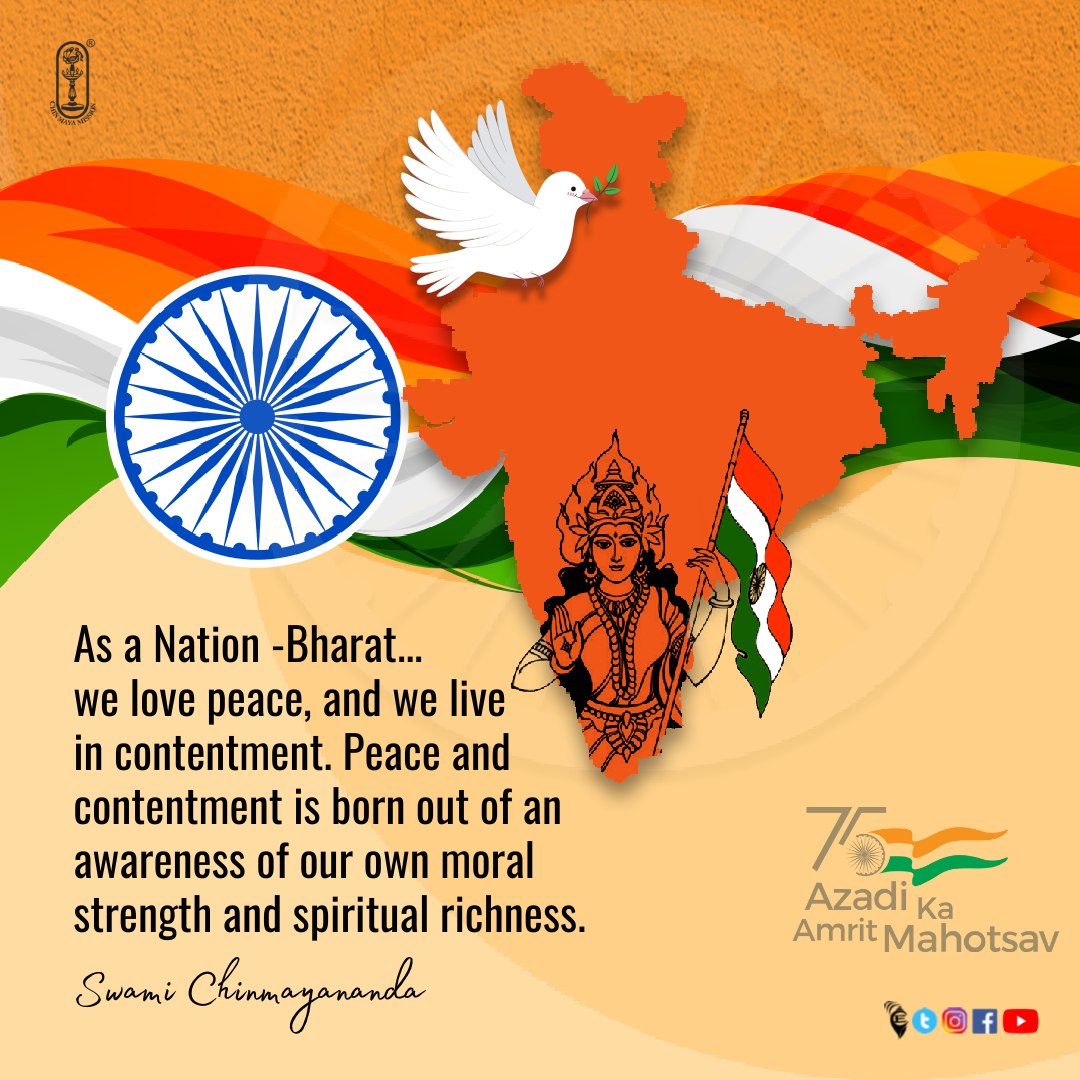Ancient Culture ( Samskaram ) of India ( Bharatham ) - 9. Swami Krishnananda.
=======================================================================
========================================================================
1.#Opinion :Tuesday, August 23, 2022. 08:00. 2832.//
2.#Chapter 6: Similarities between the Ramayanam and Mahabharatam -9.
=======================================================================
The purpose of the epics is not to tell you to do this or not to do that; they are only to tell you what life is. Take it for what it is worth. Life is just what it is. I cannot tell you that this must be done or that should not be done, but I will tell you what life is. Life is a conflict. The Mahabharata is a conflict, the Ramayana is a conflict, life is a conflict; it is a tension between the subjective side and the objective side, a conflict between the transcendental and the relative, God and man, Titan and the heavens. These clash between each other, and this clash will continue as long as the world exists and creation continues.
The manner in which you have to free yourself from this predicament of conflict is the sadhana that you have to practise. The spiritual practice, the sadhana, the japa, the meditation, whatever you are engaging yourself in, is the process of an intricate disentanglement that you are undergoing for the gradual relief from the relative entanglements for the purpose of a transcendental achievement. Finally, it is success.
It is in the Bhagavadgita that we have the final word as to the reason for success—the coming together of God and man: yatra yogeśvaraḥ kṛṣṇo yatra pārtho dhanurdharaḥ, tatra śrīr vijayo bhūtir dhruvā nītir matir mama (B.G. 18.78). God will not plough your field for you, He will not cook your food, but He will see that you are provided with the facility to plough your field and also cook your food. But without God's help you cannot plough your field or cook your food. The individual and the Universal have to move in a harmonious manner, seated in a single chariot. Arjuna and Krishna were seated in a single chariot, and they have a common purpose in the movement of the chariot. If the purpose of God and the purpose of your mind are one, success shall be yours.
Yato dharmas tataḥ kṛṣṇo yataḥ kṛṣṇas tato jayaḥ (M.B. 6.41.55). “Where is success, Grandfather?” asked Duryodhana to Bhishma, who replied, “Wherever there is dharma, there is Krishna; wherever there is Krishna, there is success.” The other way around Bhishma said, yataḥ kṛṣṇas tato dharmo yato dharma tato jayaḥ: “Wherever there is Krishna there is justice and righteousness, and wherever there is justice and righteousness, there is success.” That is to say, where God is present, all is well. Where God is not present, all is hell. A verse from the Pandava Gita says, “That moment is hell and the worst of things come upon you when you forget the universal Vasudeva.”
Man's glory, success, welfare and future depend entirely on the extent to which the individual, the man that he is, is in harmony with the great Krishna of the cosmos. The harmony that is there between Arjuna and Krishna in every little predicament of the war should be considered as the source of success. Krishna knew what was necessary for the welfare of Arjuna, and God knows what is necessary for your welfare, what it is that you need. You should know that God knows what is good for you, and you should not interfere with His orders. Krishna told Arjuna what to do. Sometimes Arjuna could not understand what it was that was being told him, but he did what he was told. There is complete rapprochement between the human will and the Universal will, but before this rapprochement takes place, before this harmony is finally established, before you find yourself in a position to totally agree with God's will, you will have to pass through hell, really speaking.
A poem of Aurobindo says, “Before you reach heaven, you have to pass through hell. Before you reach God, you have to pass through the world. Before you reach the Absolute, you have to pass through the relative. And before you drink honey, you have to have the sting of bees.”
*****
Next-Chapter 7: The Message of the Mahabharatam.
To be continued ....
=========================================================================








Comments
Post a Comment